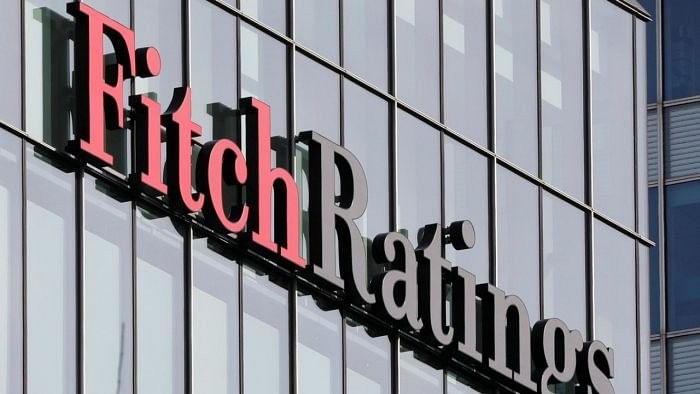
The Fitch Ratings logo is seen at their office.
Credit: Reuters File Photo
New Delhi: India, which is less export-oriented than many other Asian economies, would be relatively unaffected in case the US levies higher tariffs on imports, Fitch Ratings said on Monday.
Fitch said higher trade barriers in the wake of the US elections could pose additional challenges for issuers across multiple credit sectors in Asia-Pacific (APAC). Also, weaker growth globally would weigh on macroeconomic prospects in Asia in the event of sharp US tariff increases, especially if China's economic prospects are affected disproportionately.
It said that the high share of exports going to the US, coupled with high dependence on exports for growth within the region, means that any hit to exports to the US would have negative repercussions for GDP in many Asian economies, albeit to varying degrees.
Fitch views Vietnam as the most vulnerable on this front, but Taiwan, Thailand, Hong Kong, Singapore, Malaysia and South Korea would also have significant exposure. A sharp increase in US tariffs could therefore pose a significant challenge for Asian exporters.
"Hong Kong, Taiwan, Singapore and Malaysia also stand out as economies that would be significantly hit. India, which is less export-oriented than many other Asian economies, would be relatively unaffected," Fitch Ratings said.
Fitch has conducted an analysis of the potential effects on global growth of higher US tariffs. We estimate that there would be a significant hit to global growth prospects under an illustrative scenario in which the US imposes 60 per cent tariffs on all imported goods from China and a 10 per cent across-the-board tariff on all goods imported from the rest of the world.
Fitch said the exact nature of any proposed tariff increases that a Republican administration would pursue remains somewhat vague, with the party's platform stating that "Republicans will support baseline Tariffs on Foreign-made goods, pass the Trump Reciprocal Trade Act, and respond to unfair Trading practices". The Reciprocal Trade Act would give the president the authority to raise US tariff rates on trade partners that impose higher tariffs on imports from the US than those applied to their exports.
Fitch Ratings in its report examined the potential impact on APAC issuers of major policy shifts if Donald Trump wins the US presidential election in November 2024.
"We do not assess the policy positions of Trump's opponent, Vice President Kamala Harris, but anticipate greater continuity with policies under the current administration of President Joe Biden if she wins," Fitch said.
Vowing to introduce a reciprocal tax if elected to power, former US president Donald Trump last week alleged that India, among all major countries, imposes the highest tariffs on foreign products.